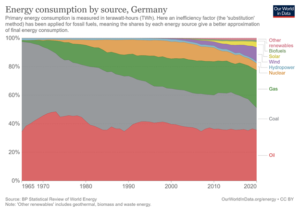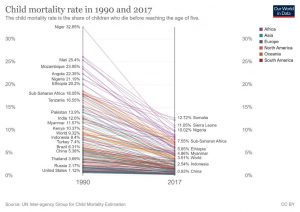Once you see a new world, you can’t unsee it.Unfolding across America and the world is a new, parallel economy—nay, even a parallel life. It started with the most promising solution to a broken money and headed downstream from there. Inflation, money printing, misallocation of resources, central bank bailouts, and interventions—many of us saw these for what they were and recognized how damaging their mishandling has become to economic affairs and the fabric of society itself.Now people receive their information via unstoppable, decentralized freedom networks like Nostr, share encrypted messages over programs like Signal, and hold their wealth in unstoppable, decentralized monies. Additionally, people increasingly acquire their sustenance from local growers and
Read More »Articles by Joakim Book
The Absurdity of Intellectual Property Laws
July 28, 2024What is the Mises Institute?
The Mises Institute is a non-profit organization that exists to promote teaching and research in the Austrian School of economics, individual freedom, honest history, and international peace, in the tradition of Ludwig von Mises and Murray N. Rothbard. Non-political, non-partisan, and non-PC, we advocate a radical shift in the intellectual climate, away from statism and toward a private property order. We believe that our foundational ideas are of permanent value, and oppose all efforts at compromise, sellout, and amalgamation of these ideas with fashionable political, cultural, and social doctrines inimical to their spirit.
[embedded content]
Read More »Anarchy in the UK
July 24, 2024What is the Mises Institute?
The Mises Institute is a non-profit organization that exists to promote teaching and research in the Austrian School of economics, individual freedom, honest history, and international peace, in the tradition of Ludwig von Mises and Murray N. Rothbard. Non-political, non-partisan, and non-PC, we advocate a radical shift in the intellectual climate, away from statism and toward a private property order. We believe that our foundational ideas are of permanent value, and oppose all efforts at compromise, sellout, and amalgamation of these ideas with fashionable political, cultural, and social doctrines inimical to their spirit.
[embedded content]
Read More »The Absurdity of Intellectual Property Laws
July 13, 2024In a previous article, I explored the absurdity of intellectual property, the unfair and inefficient monopoly privilege it confers on those savvy enough to play the legal system well. By being nonscarce, nonrivalrous objects like ideas or sound waves strung together in a specific order, they can’t be property economically speaking. Nobody can “own” vibrations or reasonably punish me for using your grandmother’s recipe for meat stew. (This is also the reason cultural appropriation is such a nonsense concept.)A lot of libertarians go wrong here, as legal scholar Stephan Kinsella has spent a career flushing out. The mistake is easily made. Once you realize the crucial role that (private) property plays in the economic system — allocating resource decisions and giving
Read More »Anarchy in the UK
July 10, 2024Anarchism [an·ar·chism] n. 1. “a political theory holding all forms of governmental authority to be unnecessary and undesirable and advocating a society based on voluntary cooperation and free association of individuals and groups”Merriam WebsterThe venerable British magazine The Economist has us worried in their May 11 issue titled “The New Economic Order.” Contemplating what seems to be the collapse of the global, liberal order—Francis Fukuyama’s End of History story, more or less—the leader article argues that “a worrying number of triggers could set off a descent into anarchy, where might is right and war is once again the resort of great powers.”Later in the piece we’re told that once the precious conditions of the last three decades break, “it is unlikely to
Read More »Private Property Comes from Scarcity, Not Law
June 28, 2024What is the Mises Institute?
The Mises Institute is a non-profit organization that exists to promote teaching and research in the Austrian School of economics, individual freedom, honest history, and international peace, in the tradition of Ludwig von Mises and Murray N. Rothbard. Non-political, non-partisan, and non-PC, we advocate a radical shift in the intellectual climate, away from statism and toward a private property order. We believe that our foundational ideas are of permanent value, and oppose all efforts at compromise, sellout, and amalgamation of these ideas with fashionable political, cultural, and social doctrines inimical to their spirit.
[embedded content]
Read More »Private Property Comes from Scarcity, Not Law
June 21, 2024Property is a key economic principle for markets to operate and their participants to live in harmony with one another. But as with so many things in the modern age, the scene (and accompanying meme) from the 1987 movie The Princess Bride applies: “You keep using that word; I do not think it means what you think it means.”To the Marxian, property means unjust hoarding of resources. Most Americans think of their houses. To Murray Rothbard and many other libertarians who thought deeply about the nature of society, property means civilization and “implies the right to find and transform resources: to produce that which sustains and advances life.”Property rights mediate the societal decision of how to use resources for which there are competing ends. Put differently,
Read More »Sebag and Natural Money
March 15, 2024Natural orders are things that emerge on their own or reflect the true nature of how something is or was meant to be. Two of my favorite books, both of which dramatically changed my outlook on the world, are A Hunter-Gatherer’s Guide to the 21st Century (by biologists Heather Heying and Bret Weinstein) and Company of Strangers: A Natural History of Economic Life (by economics professor Paul Seabright). Even though they deal with different subject matters, what unites them is the emphasis on the real and natural — the pursuit of true, established, consistent ways in thing which species, humans, economies, trade, and all manner of other important things flourish.It is not the case that the world can be any which way its people want — or the way us moderns may delude
Read More »Do Destroyed Monuments Represent a Past Not Worth Defending?
January 6, 2024Many cities and states in this country have been tearing down or destroying monuments because they represent part of a past that progressives and leftists believe should not have existed. Yet each time we tear down something, we potentially lose part of an important heritage.
Original Article: Do Destroyed Monuments Represent a Past Not Worth Defending?
[embedded content]
Tags: Featured,newsletter
Read More »Ten Years Ago, I Discovered the Mises Institute. These Are the Things I Wish I Had Done Differently
November 13, 2023Quit College—or Better Yet, Don’t Even Start
When I was in university a decade ago, this was some wacky, contrarian advice. It wasn’t unheard of for intellectual, middle-class youngsters to opt out of college, and it was still the early days of efforts like Praxis, but realistically there didn’t seem to be any alternatives. So, I went to university because that’s where you learn things and become a grown-up . . . or something.
These days, half of American parents say they prefer their kids not enroll in a four-year college program.
It’s too expensive a product, and what you’re getting is so worthless that had you sold the product on the free market the government would take you to court for fraud. The return on investment from higher education is widely diverging
Totalitarian Ideals and Not Living by Lies
September 29, 2023More than forty years ago, Aleksandr Solzhenitsyn urged his fellow Russians “not to live by lies.” In our politicized age, his words ring truer than ever.
Original Article: Totalitarian Ideals and Not Living by Lies
[embedded content]
Tags: Featured,newsletter
Read More »Cultural Appropriation: The Nontheft of Something No One Owns
September 11, 2023When I was at the university, I once objected to a classmate’s lazy use of “public goods.” He had used it to favor his policy position, as a shorthand synonym of what’s good for society—only a thinly veiled euphemism for what I want to happen.
“Public goods are things that are nonrivalrous and nonexcludable,” I said, almost sputtering off a nearby economics textbook. “The ones you’re talking about are neither.”
He rolled his eyes in boredom. “Yes, yes, but that’s not what people mean when they say, ‘public goods.’”
Strangely, I think he’s right. These days, the economist’s clear and rather demanding criteria of so-called public goods are largely swept aside in favor of something like “What I think would be good for the public.” And that little linguistic slip
Totalitarian Ideals and Not Living by Lies
September 4, 2023On we go, further and further into the era of post-journalism, where outlets survive not on the accuracy and honesty of their reporting but on the appeal of their narrative.
—Fred Skulthorp, The Critic
Nobody has missed that the West suffers from a credibility problem. Its institutions—by which we mean the media, government officials, academia, teachers’ unions and other joint societal “stuff” —hold less and less of our collective trust (business excepted, it seems). We don’t trust the media to convey or display the truth; we don’t trust our governments to tell the truth, to act honorably, or to steward the “commons” in good faith. Speaking of faith, the intellectual elites have broadly replaced God not with Mammon but with Gaia—many worship at the altar of St.
The Senator Who Didn’t Know (but Thought She Did)
January 11, 2023Legislators have a strange relationship with magic. To achieve that which physically cannot be done, they like to wave magic wands and pretend that it can. Reality puts a limit on political power, a realization that always sits poorly with those in charge of our trillion-dollar bureaucratic machinery.
Senator Elizabeth Warren is a stunning case in point, and she’s had her aim at the magic-seeming world of digital assets like bitcoin for a while. Last month she cosponsored The Digital Asset Anti-Money Laundering Act of 2022 with Roger Marshall which attempts to put those assets under rules that echo the regulatory system that cryptocurrencies were created to escape.
The bill’s purpose is “closing loopholes and bringing the digital asset ecosystem into greater
Lighting the Gas under European Feet: How Politicians and Journalists Get Energy So Wrong
May 12, 2022“We live in a time where few understand how things get made. It is fine to not know where stuff comes from, but it isn’t fine to not know where stuff comes from while dictating to the rest of us how the economy should be run.” —Doomberg
Eighty-five percent of human energy usage comes from burning things. Either plants or trees grown in a geologically recent past or plants or trees (and decomposed animals) from ancient times. Solar, wind, hydro, geothermal, etc.—all the things that occupy a climate-conscious citizen, activist, or politician’s dreams—are frizzles around the edges.
Human civilization is powered by combustion; human beings are a fossil fuel–burning civilization.
You can take away the civilization part, which seems to be the end goal for some
A Review of Nik Bhatia’s Layered Money: From Gold and Dollars to Bitcoin and Central Bank Digital Currencies
March 29, 2022For understanding our modern monetary troubles, Nik Bhatia’s pamphlet-sized book from last year hits exactly the right intersection between money and banking, between the past and the future. Clocking in at around 150 pages of easy prose, it’s accessible but not dumbed down, revealing but not inaccurate. It has a simple framework that Bhatia explains and explores with great expertise.
As an introduction to what bitcoin is as a monetary technology, Layered Money: From Gold and Dollars to Bitcoin and Central Bank Digital Currencies is superb, and Bhatia goes through our monetary past to arrive at bitcoin’s role in the monetary future. It’s a little brief on the monetary history front—though as a trained financial historian, I am likely to say that about any book.
How the West Pushed back the Frontiers of Death
October 24, 2021The world we come from had lots of death. Every society we know of before the mid-1800s or so saw more than one in four children die during their first year of life. Of those who made it through this first difficult year—through disease, malnutrition, famines, or natural disasters—another quarter or so died before they reached fifteen. Into the 1900s, you had to get into your sixties before your per year risk of death again was as high as it was in your first year of life.
Plenty of people died at later stages of life too.
Human life itself, we might say, hung on by a thread, never further away from ending than a poor harvest or a festering wound.
When we cite numbers for life expectancy (usually in the midthirties before the year 1800), they largely capture this
Lockdowners and “the Desire to Dominate”
November 8, 2020.
In many years of lecturing at Mises University, Judge Napolitano has given the same—terrifying—ending to his introductory speech. Not until the horrors of this year did it dawn on me that perhaps his point has its basis in reality.
The dear judge often mentions, almost like a joke, the libido dominandi—the desire to dominate, or the will to power, harking back to Augustine of Hippo’s centuries-old writing. We find similar notions in Friedrich Hayek’s “Why the Worst Get on Top” chapter in The Road to Serfdom and most certainly in the eerily relevant writing of Robert Higgs.
The memorable ending in Napolitano’s lecture is:
I expect that I will die, faithful to my first principles…in my bed, surrounded by people that love me. Some of you may die, faithful to first
Central Bankers Are Running Out of Options
March 27, 2020Corona fears have shifted the world’s central banks into hyperdrive. Talk more, do more, lend more—and buy everything that moves. One after the other, the major central banks took to the barricades, manned the canons, fired their bazookas, and every other military metaphor you can think of.
Nobody stopped to think whether the policies that they quickly and loudly announced would work. Nobody investigated whether they could be prevented from reaching their increasingly desperate creators’ desired recipients—nevermind the much bigger questions of whether these goals are desirable or whether central banks ought to do what they’re doing in the first place. “What if,” asked nobody at any central bank during the last few chaotic weeks, “some crucial stage of our








